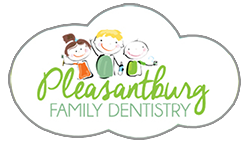Pacifiers in Greenville, SC
Even before birth, babies suck on their thumbs and fingers. Sucking is a natural soothing activity for babies. Giving your infant a pacifier provides a quick, soothing solution to fussiness without feeding. And here’s a bonus: Putting a baby to bed with a pacifier may even reduce the risk of sudden infant death syndrome (SIDS) by half!
DID YOU KNOW?
Pacifiers were first recorded as being used for children as far back as 1473!
It’s important for parents to know that choosing the right type of pacifier and monitoring its use can significantly impact their child’s dental health. Prolonged use may lead to future orthodontic issues. How can you find the best pacifier for your baby? What steps can you take if your baby doesn’t take a pacifier? We’re here to help guide you through these questions and more on this page.
Questions and Answers About Pacifiers for Babies
Part of our role as partners in the oral health and development of your little one is to teach you about dental-related issues. Pacifiers are one such topic.
Which type of pacifier is best for my baby’s future oral health?
If you bottle feed, the company that manufactures the nipples for your baby’s bottles may also fabricate pacifiers. If so, using a pacifier shaped similarly to your baby’s bottle nipples may be the best option. Otherwise, purchase a pacifier that is/has:
- One piece
- Made of medical-grade silicone
- Free of PVC, BPA, and phthalates
- A shield bigger than your baby’s mouth
- Age appropriate
What if my infant refuses a pacifier but needs something to soothe them?
Some babies aren’t attracted to pacifiers. They may prefer their own hands, fingers, or thumbs over a pacifier, and that’s okay. It’s certainly convenient!
If your bundle of joy spits out a pacifier, you can use other soothing techniques, such as:
- Swaddling: A swaddle is a snugly wrapped blanket in which only the baby’s head is exposed. This soothing technique is a simple trick you can easily use at home and on outings.
- Rocking or swaying: A rocking chair or glider provides a comfortable tool for rocking your baby. Some parents use a mechanized baby swing, go on walks with a stroller, or take the baby for a car ride. If none of this works, try setting your baby’s carrier, with the baby strapped in, atop the clothes dryer and turning it on. The motion and sound can, in some cases, soothe a fussy baby.
- Comfort object: Babies are often attracted to one particular toy, blanket, or stuffy more than others. The object of their focus can become a source of comfort, soothing them when they’re unsettled. A comfort object can also help with transitions, like moving the baby from your arms into bed.
At what age should an infant begin using a pacifier?
Breastfeeding babies should not be given pacifiers until three to four weeks of age. Bottle-fed babies can begin pacifier use just after birth.
At what age should a child stop using a pacifier?
Ideally, you can wean your baby from a pacifier at six months to one year of age. However, many toddlers use pacifiers until they are three years of age. If you notice speech problems or the front teeth shifting outward, it’s time to wean your little one from the pacifier. Talk with our children’s dentist about the best time to end pacifier use with your child.
What can I do to wean my toddler off their pacifier?
Weaning from a bottle, breast, or pacifier can be difficult. The longer your little one has used a pacifier, the more difficult the challenge may be. When your baby wants his pacifier, use alternate comfort methods like rocking and comfort objects. Parents should be consistent, patient, and caring during the weaning process. It takes time and lots of encouragement!
How should I clean pacifiers?
Wash pacifiers with warm, soapy water and rinse them well. You can sterilize pacifiers with bottle nipples, as well. Be sure to throw away a pacifier if you notice wear or defects.
Your Partners in Infant Oral Health in Greenville
If you still have questions after reading about pacifiers, great! Please call us or ask questions and share your concerns when you bring the baby in for a visit. Remember to schedule an oral health checkup for your baby after the first tooth erupts. We’ll identify any oral development issues, including whether it’s time to stop pacifier use and equip you to take great care of your little one’s oral health at home.



